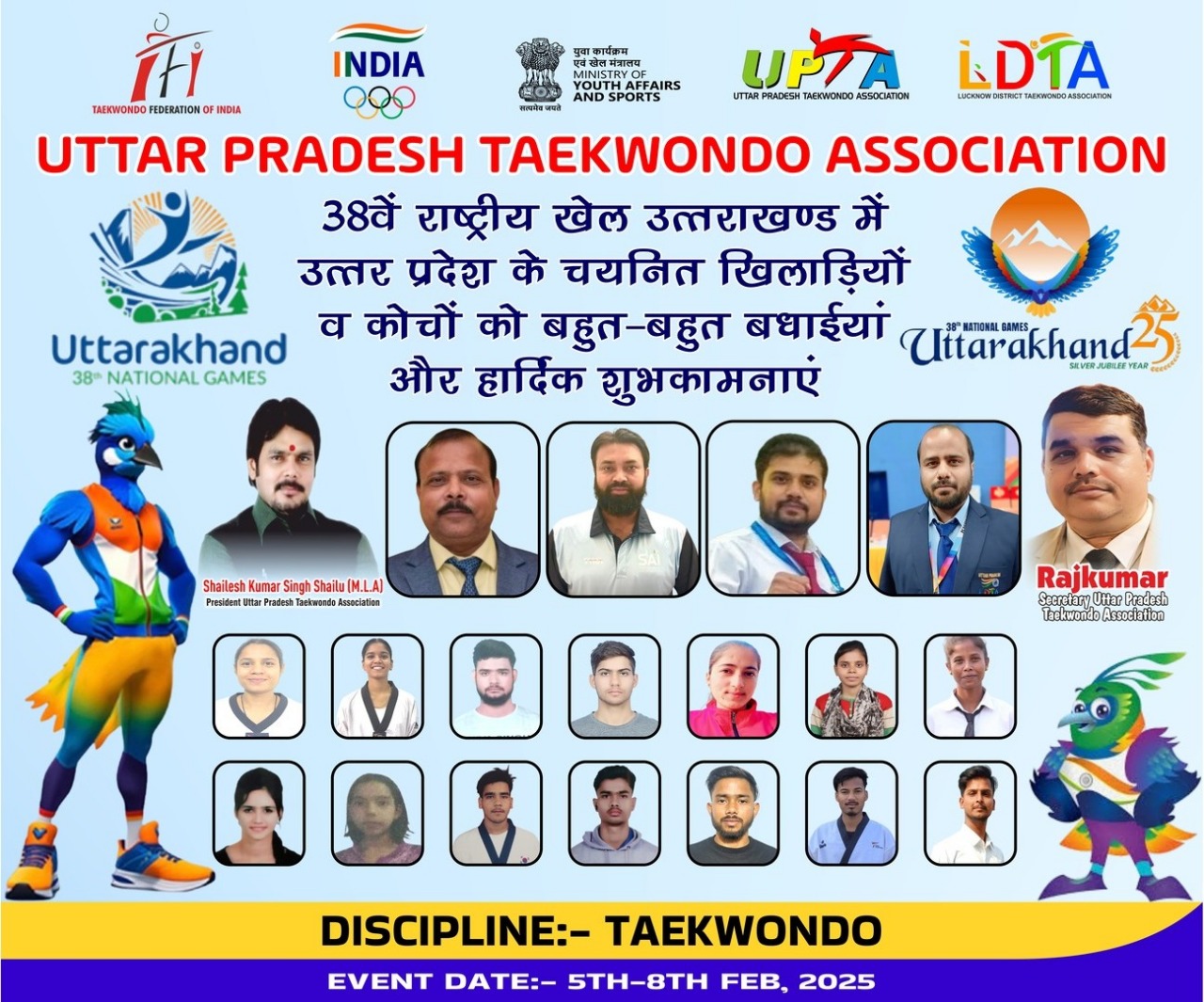
Empowering Minds, Building Champions: Uttar Pradesh Taekwondo Association
The Uttar Pradesh Taekwondo Association (UPTA) is a governing body for Taekwondo sports in India, affiliated with the Taekwondo Federation of India and the Uttar Pradesh Olympic Association. It is responsible for developing and promoting Taekwondo sports in the state of Uttar Pradesh, with a focus on providing quality training and coaching to young athletes. The association collaborates with other sports organizations to organize competitions and events at various levels and as established training centers and programs to promote Taekwondo sports among students. Its efforts have helped to increase awareness and participation in the sport, and the association is poised to contribute to the growth and success of Taekwondo sports in India.
President of the UPTA is Mr. Shalesh Kumar Singh (Shailu), an experienced administrator who has been instrumental in growing the sport's popularity in Uttar Pradesh. The General Secretary of the UPTA is Mr. Rajkumar an experienced taekwondo practitioner, who works closely with president and the executive committee to execute the UPTA's strategic plans and programs.






Taekwondo training can improve overall physical fitness, including strength, endurance, flexibility, balance, and coordination.
Taekwondo includes training in self-defense techniques, which can help practitioners feel more confident and capable in real-life situations.
Taekwondo training promotes discipline and self-control, helping practitioners to develop a strong work ethic, self-motivation, and the ability to set and achieve goals.
Taekwondo training can improve mental focus and concentration, which can be beneficial in many areas of life, including work and school.
Taekwondo training can provide a healthy outlet for stress and tension, helping practitioners to manage their emotions and feel more relaxed and balanced.
Taekwondo training can help build self-confidence and self-esteem, particularly as practitioners develop their skills and achieve their goals.
Taekwondo training can provide a sense of community and belonging, as practitioners work and train alongside like-minded individuals who share a passion for the martial art.
Taekwondo training can help build positive character traits, including respect, honesty, integrity, perseverance, and a sense of responsibility to oneself and others.

in few easy steps
Taekwondo includes kyorugi, which is a form of controlled combat between two practitioners wearing protective gear. Kyorugi matches are decided by a point system based on strikes and kicks to designated target areas. Kyorugi is an important aspect of Taekwondo training as it provides a practical application of techniques learned in class.
Taekwondo includes a series of pre-arranged movements known as forms or patterns, which are designed to help practitioners develop muscle memory, balance, and control. Forms are also used to demonstrate technical proficiency and mastery.
Taekwondo is well-known for its variety of kicks, including powerful and dynamic kicks such as jump, spin, and flying kicks. These kicks are designed to be both fast and powerful, and are often used to target specific areas of the body.
Taekwondo has a strong philosophical component, emphasizing values such as respect, discipline, perseverance, self-control, and indomitable spirit. Practitioners are expected to adhere to a strict code of conduct and develop a strong work ethic, self-motivation, and the ability to set and achieve goals.
Players
Training Centers
Coach
Referee